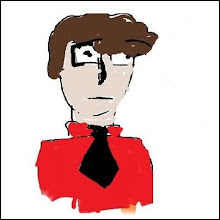Unpublished Epilogue to God Emperor of Dune
Leto II: So this is what it's like to be dead.
God: Hey.
Leto II: Oh wow, it's Real God. I'm glad I got that Golden Path thing sorted before I died. I have freed humanity from ever again being held under on flag, or exterminated by one foe. I have created a Dark Age so that there will be a Renaissance like never before.
God: Yeah...about that.
Leto II: What? It didn't work? I have prescience like a mother fucker, it had to work.
God: I know you really tried, kid. But in 1500 years Omnius is going to try and exterminate mankind. It'll work too, if he isn't stopped.
Leto II: Omnius? Who the fuck is Omnius?
God:
Overmind of the machine empire, they've been building ships since the end of Butlerian Jiahd. He's got back ups of himself in all these nodes. Going to totally exterminate everyone.
Leto II: Nuh-uh. Don't buy it. I would have seen it. Loaded up some Heighliners with nukes and then used my prescience to simultaneously nuke all his cute little nodes from orbit. I woulda kicked his ass.
God: Yeah. But you didn't. Cuz you're all mysterious and stuff.
Leto II: So what do the humans do? Build a big fleet? Loose sandworms in his city? Fight a big war?
God: Look, I hate to be a buzz kill, but here's the deal: They do all those things. But it don't really matter. They could just as easily rolled over and hid. Remember Norma Cenva?
Leto II: She invented fold space engines.
God: She's an omnipotent super being. She can banish Omnius to a parallel dimension with her brain waves.
Leto II: So what the fuck is she waiting for? Do it right now!!
God: She doesn't know where he's at though. For that she has to follow Duncan Idaho there. Really, all that it takes is for Duncan to get captured, taken to Synchrony, then she can zap the bad guy. No reason it has to take longer than five minutes.
Leto II: Granted, I'm half man-half sandworm, but this all seems a little far fetched.
God: Sorry dude.
Leto II: ....
...
this sucks. :(


